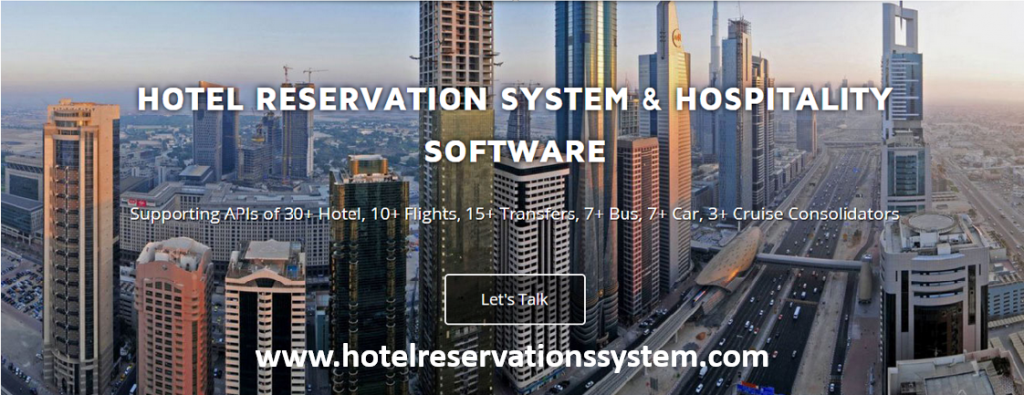Travel Hype Cycle and the predictable path to emerging technologies
Artificial intelligence is a technology which was a mystery to many, just a few years ago. But is now a fast-enhancing technology in the travel industry as well as in other industries and many are using it as a business tool that improves customer experience and increases efficiency.
We are in a constant state of hype emerging in the latest technologies and their severe impact on the travel industry. We all have witnessed the impact of excessive hype on our industry and as a result of the fallout. The issue is not the overhyping of coming up tech as every industry have to deal with this issue. The issue becomes a problem when the hype bursts and the sourpuss in the industry discounts the technology.
>> Looking for an Airline Reservation System? : Connect with Sales
Banishing the emerging tech because of over-hype can be threatening for any organization. Executives at Blackberry and Nokia banished the initial introduction of the iPhone ten years ago which is not at all practical for any business. History has shown it to be a blunder costing both of them billions of dollars. In the Travel Industry, the initial launch of the OTAs was banished by the offline community, with everyone believing that no one will prefer to buy travel online. Even now, many travel companies lack behind in an appropriate mobile strategy. It’s very essential to observe what has been happening in China and Southeast Asia, for instantly understanding how mobile is being used for booking today. Especially in countries where the laptop travel ecosystem never fully developed. In clear words, the travel companies who do not think of mobile as a booking channel now may be the Blackberries of tomorrow.
There are some of these same travel industry sourpusses may announce that AI may have a minimal impact on the travel industry. We have seen aerated claims about AI in terms of digital assistants and voice, leading to dismiss these new technologies as not ready for prime-time. On Saturday Night Life the original cast was called the “Not Ready for Prime-time Players”. The show has now lasted 43 years and is still a major launching pad for comic superstars in TV and movies. The same is true of growing tech, “not ready for prime-time” does not have the meaning that tech will have no impact.
What if many people slip the evolutionary nature of growing technology, during various keynotes. But now AI is already part of the technological fabric of our lives. And is not gonna disappear soon for sure!!!
Technology guru Scott Klososky introduced the public to the Emerging Technology Hype Cycle. The Hype cycle is a chart that shows the somewhat predictable path that new technologies tend to tread, beginning with a steep climb up the Peak of Inflated Expectations, a near free-fall into the Trough of Disillusionment, a gentle resurrection onto the Slope of Enlightenment and then a comfortable life on the Plateau of Productivity.
>> Looking for an Airline Reservation System? : Connect with Sales
The Hype Cycle was created by Gartner, an information technology research and consulting group in Stamford, Conn. Gartner has taken the concept beyond general emerging technologies and offers more than 100 subcategories, ranging from cyber threats to telecommunications to life insurance.
We began with a significant issue in a sector that is already constructed on confidence, where powerful relationships exist and work well to handle complexities. The important question here is: Is there a role for blockchain? To get to the bottom of this, we analyzed as a beginning the suitability of the blockchain to handle on-board and travel content management for safe delivery and sale. We also looked at other prospective use cases in our industry for technology.
If something is on the Peak of Inflated Expectations, it does not mean that it is an empty promise or mere puffery. Example: In 1996, a Microsoft executive told me that, due to his company’s superior understanding of the Internet, it would soon dominate travel and any other industry it chose to enter. Likewise, the Trough of Disillusionment is not a grave. It’s just the period when the spotlight has moved on to those climbing the Peak of Inflated Expectations. Those in the Trough tend to be judged more on current performance rather than potential.
We are constantly hyped about evolving technologies and their effect on the travel industry. Over the past 23 years, as an analyst/consultant specializing in emerging tech, I have personally experienced the effect of excessive hype on our sector and the resulting consequences. The issue is not the over-hyping of emerging tech as this issue must be addressed by all sectors. The problem is when the hype bubble bursts and the industry’s naysayers discount the technology.
It can be hazardous for any organization to dismiss emerging tech due to over-hype. Blackberry and Nokia’s leadership rejected the iPhone’s original implementation 10 years ago as never practical for company. History has shown that this is a critical error that costs billions of dollars to these businesses. The offline community has rejected the original launch of the OTAs in our sector, with some believing that no one will ever purchase internet travel. Even today, many travel businesses are lacking a real mobile approach or simply repeating the “common knowledge” that mobile is seeking not to buy. One only has to observe what has been happening in China and throughout Southeast Asia, to comprehend rapidly that mobile is being used to book today, particularly in nations where the ecosystem of desktop/laptop travel has never fully evolved. In reality, the Blackberries of tomorrow maybe those travel firms that do not adopt mobile as a reservation channel today.


